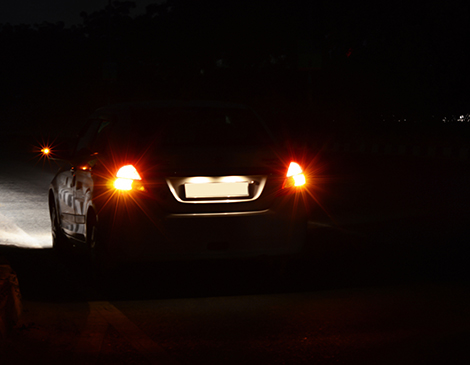“Look at all these people, pursuing happiness,” Clyde said, watching the welter of cars jockeying for position on the freeway.
I laughed at the expression, which captured perfectly the hectic energy of the rush hour, but also something about America I hadn’t put into words.
Despite the adrenaline rushing around us, Clyde took his time, navigating his way to the triple-A ballpark. He didn’t seem to mind the cars aggressively angling by him. There was always something formal about him, gentlemanly, as if he grew up among aristocracy. Though he wasn’t even 30, he drove like an old man, keeping his hands at 10 and two and his eyes ahead, only looking over now and then to crack a joke.
We were both Ph.D. candidates in English at a big Midwestern university some 20 years ago, and had taken classes together. But our bond went beyond academics. We were teammates on intramural basketball squads that featured some of the best players that haunted the university gym, including a shy writer named Kiese Laymon. Clyde was a natural leader, a man among men, with a sweet midrange jump shot and relentless energy. He had a way of getting into a defensive stance, slapping the floor with his palms, as if to dare someone to drive past him.
When we played, though he was our age, he acted as an informal player-coach, setting up plays and keeping everyone on the same page. Both years we played together, we made it to the intramural championship. On the road, dealing with people and their happiness, Clyde showed his driving skills and his patient vision weren’t limited to the court.
I don’t remember a thing about the baseball game, except maybe the hot dogs, an American kind of experience where the spectacle is the thing. What I do remember is the drive home. By the time the game was done, and we’d found the car, twilight softened the sky, streaking it with color. The drive back to our college town would take over an hour, and as night fell, and Clyde turned the headlights on, he talked about how he missed New York City, his neighborhood. Not like he felt on campus, one of a handful of Black students in a sea of whiteness. We talked about our dissertations, the struggle to get the arguments airtight, and the communities we hoped to buoy with our words.
About halfway home, Clyde got quiet, and shifted in his seat, unable to find a comfortable position. He let out a little gasp.
“Sorry, man,” he said. “Should have gone to the bathroom at the game.”
“No worries, man,” I said. It was funny at first.
But the gasps grew in frequency and volume, until he was twisting himself, trying to find a comfortable position while driving.
The signs said we were about to pass through a certain small town.
“Why don’t you stop, man?” I said. He seemed to be in excruciating pain now.
He turned to me. “There is NO WAY I’m stopping in Martinsville,” he said.
For most of the 20th century, Martinsville, Indiana had a reputation as a stronghold of the Ku Klux Klan, and I’d heard the stories when I arrived. But to me, it was a grim reminder of America’s history of racism, something very much in the past.
“Clyde, come on, just stop at that gas station,” I said, pleading with him. He was in agony. “I’ll go in with you. There won’t be any trouble.”
“Can’t do it, man. I’m sorry,” he said, still in pain, but resolved.
And in the dark car, surrounded by Martinsville, in the wider dark, I watched the lit houses rushing by, and then the trees of the highway woods, as we drove into the darker night between country towns. It seemed like a different country, suddenly, one I didn’t recognize. Years later, I’d hear a joke: the South is 20 minutes outside any city. But this story isn’t about Martinsville, really, nor is it about the South or the Klan: it’s about America, and a Black man driving after dark through a country that is and is not his own.
Clyde kept shifting his position, trying to find a comfortable way of sitting, gasping as if he were being stabbed in the stomach. There was nothing I could do but sit there and pretend I couldn’t hear it, or tell a joke to try to help him forget.
I don’t know how long we sat together like that, watching the headlights core out the suddenly unfamiliar space between us and home. It couldn’t have been more than an hour, but it seemed like an eternity.
When we pulled up to my house, I asked him if he wanted to use the bathroom, and he declined. So I bolted out and said goodbye, to spare him extra pain.
We never talked about what happened that night. Our paths diverged the next year, to teach literature at universities in different parts of the country. I’ve thought about him often, particularly when I marched for Black Lives in downtown Cleveland last May.
But no protest, or for that matter not any book or movie, in my many years of teaching and loving Black books and movies, has told me as much as I learned from Clyde about the terror of being Black in America, sitting beside him in that car, his body writhing, trying to make it home.




